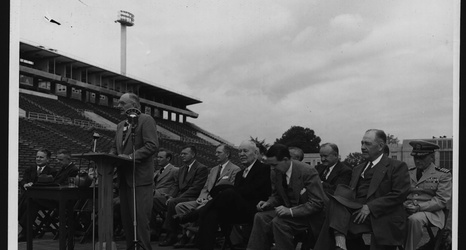As if Governor Eugene Talmadge’s power-hungry tactics weren’t enough, Georgia Tech, along with the rest of the United States, and indeed the world, were being plunged into global conflict. With the presidential role at Tech very much on the brink of turnover, while the campus was forced to adapt to attacks at home and the burdens of the massive conflict, it was a hectic time not only to be a Georgia Tech student, but to be one of its facilitating administrators.
Amusingly, Wallace describes the Second World War as “an event that more than any other was to shape the Georgia Tech of today,” (212) which was probably extremely true in 1963, but, more than fifty years later, that would certainly no longer be the case.
